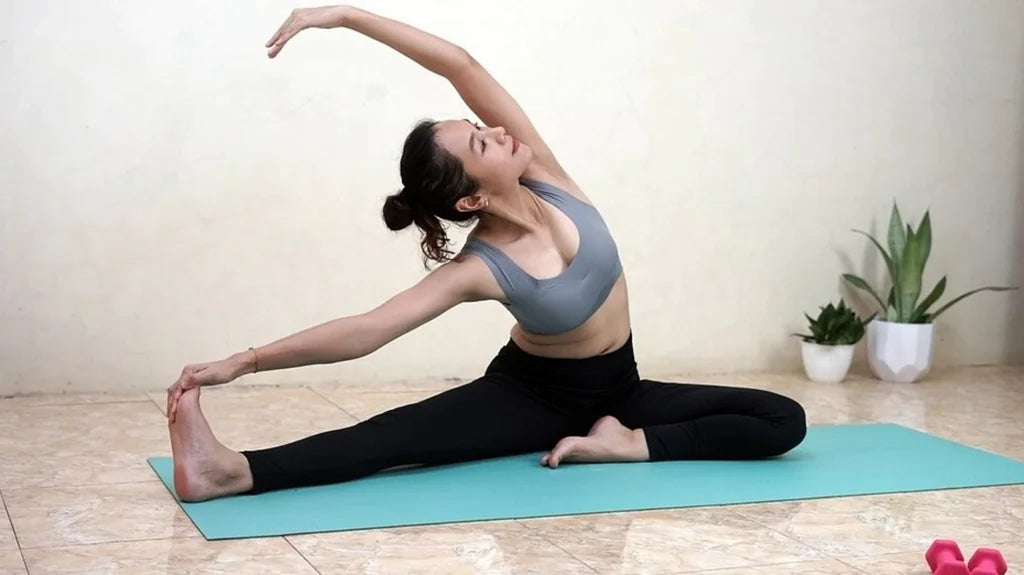When it comes to the modern lifestyle diseases that cause morbidity and mortality, high bp (bp full form is Blood Pressure) ranks at the top. High blood pressure is a severe health risk. It raises the risk of life-threatening conditions like heart attack, stroke, aneurysms, cognitive decline, and kidney problems.

So, you are looking for techniques - how to lower blood pressure? What are home remedies for high bp? Although it is necessary to take prescribed medications, there are other natural ways to lower blood pressure, which should not be overlooked. So, let's learn all about blood pressure.
What Is Blood Pressure?
Blood pressure is the force of blood pushing against the artery walls when the heart pumps blood throughout the body. Systolic pressure is referred to the pressure in your arteries during a heartbeat, whereas diastolic pressure is the pressure during the heart's resting phase between beats.
Normal blood pressure level is 120/80 mmHg (millimeters of mercury). Therefore, blood pressure higher than normal can be a sign of hypertension.
Hypertension is diagnosed when readings regularly exceed 130 over 80 mm Hg, sometimes referred to as the "silent killer" because its symptoms are not always visible. However, symptoms of bp in some cases:
- Low Blood Pressure (Hypotension)
Hypotension is a state in which the blood's constant force against the artery walls is low. This can cause symptoms like dizziness, fainting, and tiredness.
- High Blood Pressure (Hypertension)
Hypertension occurs when the blood's force against the walls of the arteries is too high, increasing the risk of severe health problems like heart disease and stroke (a common cause of high blood pressure symptoms).
Hypertension has two types - primary and secondary hypertension.
- Primary hypertension is the most common type and develops gradually over time without an apparent cause.
- In contrast, secondary hypertension is caused by an underlying condition, such as kidney disease or hormone imbalances.
Factors Affecting Blood Pressure
- Age is associated with a rise in blood pressure.
- Stress can elevate blood pressure over time.
- Sedentary lifestyle, such as inactivity (lack of physical activity), can lead to hypertension.
- Poor diets such as excessive salt, saturated and trans fats, and a lack of fruits and vegetables can raise blood pressure.
- Being overweight or obese can increase blood pressure.
- Chronic diseases such as diabetes, kidney disease, and sleep problems can increase the risk factors for hypertension.
- People with a family history of bp are more prone to develop the disorder.
Especially if you have risk factors, blood pressure should be monitored routinely.
Blood Pressure & Treatments: How To Lower Blood Pressure
- Medications
Medications are often prescribed to help control high blood pressure and lifestyle changes, such as a balanced diet, regular exercise, and managing stress. Most commonly recommended blood pressure medications are Diuretics, ACE inhibitors, calcium channel blockers, beta-blockers, and ARBs.

High blood pressure medications must be administered under medical supervision. Sometimes blood pressure medicines combined with other prescriptions and supplements can have harmful effects, so it's crucial to keep a close eye on the factors affecting bp & its medication routine with your doctor.
- Ayurveda & Dietary Habits
Blood pressure is linked to the body's doshas or energy forces:
- It is claimed that an excess of the Pitta dosha, which is associated with heat and inflammation, causes high blood pressure.
- Vata dosha, associated with dryness and coolness, is considered to cause low blood pressure.
Several Ayurvedic medicines balance doshas and lower blood pressure. Examples of such treatments include the following.
- Food To Eat/Preferred
Ayurveda emphasizes the importance of consuming a balanced, dosha-appropriate diet for blood pressure management. This implies eating foods that balance the Pitta and Vata doshas, which are associated with high and low blood pressure, respectively.
Ayurvedic dietary advice for regulating blood pressure includes the following:
- Choosing fresh, whole foods that are rich in nutrients and fiber.
- Eating cooked vegetables, legumes, and whole grains to help support digestion.
- Maintaining normal blood pressure requires adequate hydration. Drinking warm water throughout the day to help support digestion and hydration. This can also help to flush toxins from the body, supporting overall health.
- Ayurveda recommends mindful eating to promote digestion and blood pressure. Sit down, enjoy meals without distractions, and chew your food well to improve digestion.
Foods To Avoid With High Blood Pressure
- High-salt/sodium foods include fries or processed foods, canned foods, pickles, and salty snacks.
- Sugary drinks such as soda, fruit juice, and sports drinks can contribute to weight gain, raising blood pressure.
- Excessive consumption of alcohol can raise your blood pressure and lead to other health problems.
- Excessive caffeine consumption includes coffee, tea, and energy drinks, which can temporarily increase blood pressure.
- High-fat dairy products such as whole milk, cream, and cheese can contain unhealthy fats.
Herbal Dietary Habits
- Arjuna is a herb widely used to promote heart health and healthy blood pressure. Scientific research suggests that Arjuna bark (Arjuna chaal) can help reduce hypertension. The increased concentration of coenzyme Q10 is responsible for this effect. Coenzyme Q10 acts as a catalyst, lowering blood pressure and improving heart health.
- Ashwagandha is an adaptogenic herb that helps the body handle stress and anxiety. In addition, evidence suggests that ashwagandha can help lower blood pressure in hypertensive patients.

- Hibiscus tea is a natural diuretic and helps decrease blood pressure. Drinking hibiscus tea daily helps to control blood pressure.
- Amla, or Indian gooseberry, is a nutrient- and antioxidant-dense fruit. Researchers found that it lowered blood pressure. You can eat fresh Amla or drink it as juice.
- Tulsi (Holy Basil) is revered in Ayurvedic medicine for its purported ability to maintain normal blood pressure. In addition, it is a natural anti-inflammatory and antioxidant that helps improve health.
- Coconut water is a natural diuretic that lowers blood pressure. Therefore, coconut water has the potential to control blood pressure if consumed regularly.
- Cinnamon is a warming spice widely employed to promote healthy blood sugar levels. In addition, it has ingredients that may promote normal blood pressure.
- Ginger is a warming spice widely used to promote good digestion and circulation. In addition, bioactive compounds, including gingerol and shogaol, can reduce arterial stiffness and increase blood flow.
- Turmeric has natural anti-inflammatory and antioxidant properties to support healthy blood pressure. In addition, it has a bioactive compound called curcumin that has been shown to help relax blood arteries and increase blood flow.
Lifestyle Practice
In addition to diet, Ayurveda or medical professionals emphasizes the significance of a healthy lifestyle for blood pressure management.
- Regular exercise routine: Maintaining a healthy blood pressure requires a commitment to a regular exercise routine. Healthy blood pressure can be maintained with 30 minutes of moderate daily exercise, such as brisk walking, yoga, or swimming.

- Be Relax: Stress can raise blood pressure, so it's crucial to learn relaxation techniques like yoga, meditation, and deep breathing to keep your blood pressure healthy.
- Good Sleep: Reduce your risk of high blood pressure by getting a good night's sleep every night. Expert suggests 7-8 hours of sleep every night and a regular sleep schedule to maintain healthy blood pressure.
- Avoid overexertion: Be active, but don't overdo it; exhaustion is a known contributor to hypertension. Taking many breaks during the day is essential to relax and reenergize to avoid exhaustion.
- Maintain a regular schedule: Expert emphasizes the need to maintain a regular schedule to promote general health, including maintaining healthy blood pressure. This involves adhering to a normal schedule of eating, exercising, and sleeping routines.
- Quit smoking: Smoking can damage blood vessels and raise blood pressure, so quitting smoking can help lower blood pressure.
Oil Massage (Abhyanga)
Self-massage with warm oil is recommended regularly in Ayurveda for various health benefits, including regulating blood pressure. Warm sesame oil massages can be particularly effective for controlling high blood pressure. Ayurveda provides the following suggestions for self-massage:
- Massage the entire body with warm, natural oils such as sesame or coconut oil, including the scalp, ears, and feet.
- Use gentle, circular motions to help promote circulation and relaxation.
These Ayurvedic methods may aid blood pressure management, but they are not meant to replace prescribed medication. Consult a doctor to determine the best way to control your blood pressure.
Buy Namhya Heart Tea, A Popular Ayurvedic Herbal Tea Blend For High BP.
Are you worried about your blood pressure levels? Try adding "Namhya Heart Tea - for High BP" to your diet. This tea is made with the purest form of Arjuna Chhal powder (referred to as a superfood for your heart).

Its flavor and aroma are just as potent as when brewed. In addition, every glass is packed with perks, like as a boosted immune system, easier digestion, and a reduction in unhealthy fat.
Enjoy a morning or evening cup of tea with "Namhya Heart Tea - for High BP" tea by steeping them in hot water for a few minutes—this tea aid in controlling hypertension when combined with regular exercise and a good diet.


